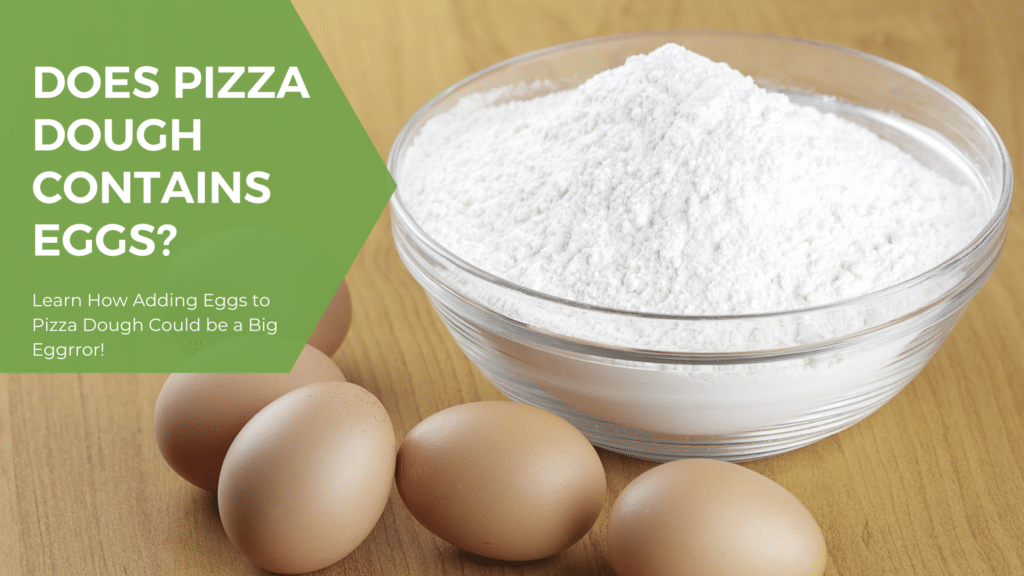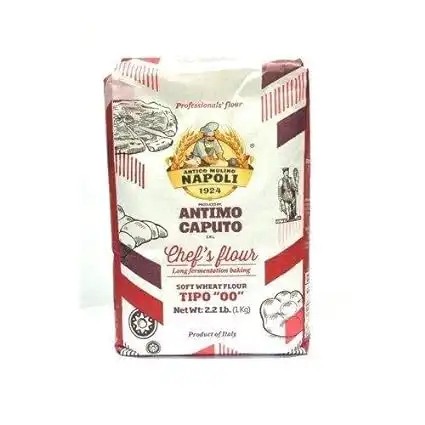Does Pizza Dough Have Eggs?
Have you ever wondered what exactly goes into making that irresistibly delicious homemade pizza dough?
Specifically, have you pondered the age-old question: “Does pizza dough have eggs?”
Well, you’re in luck! In this post, we’re going to crack open this mystery and explore the ingredients typically found in pizza dough, with a special focus on the role of eggs. Join us as we take a deep dive into the world of pizza dough, uncovering its secrets, and finding out whether or not eggs play a part in creating that perfect, chewy crust we all know and love.
So, don’t go anywhere! Stick around, and let’s embark on this tasty journey to discover the truth about our beloved pizza dough.
Let’s get started!
Here’s What You Will Find:
Key Takeaways
Does Pizza Dough Have Eggs?
Traditional pizza dough recipes do not include eggs, relying on flour, water, yeast, salt, and sometimes sugar and olive oil.
Eggs can be added to pizza dough for a richer, more tender crust with a different texture.
Including eggs in pizza dough, recipes can be especially helpful for gluten-free or alternative-flour doughs, providing structure and binding.
Adding eggs to your pizza dough recipe can impart extra flavor, moisture, and richness to the crust, offering a unique twist on the classic dough.
Are There Eggs in Pizza Dough?
Pizza dough does not contain eggs and is only made with flour, water, yeast, and salt. Sugar is sometimes added to accelerate fermentation.
Find why including eggs in your pizza dough recipe might be an error and other ways you can infuse them with your favorite pizzas.
Does Pizza Dough Have Eggs?
The answer to the question “Does pizza dough have eggs?” is actually quite simple: traditional pizza dough recipes do not call for eggs. The basic ingredients for a classic pizza dough are flour, water, yeast, salt, and sometimes sugar and olive oil.
However, there are variations to this pizza dough recipe, and some pizza dough recipes might indeed include eggs. The addition of eggs can create a richer, more tender dough with a slightly different texture.
This can be particularly useful for gluten free pizza dough or alternative-flour pizza dough recipes, where the eggs can help provide structure and bind the ingredients together. It’s worth noting that including eggs in your pizza dough can also add extra flavor, moisture, and a hint of richness to the pizza crust.
So, while eggs are not a standard ingredient in traditional pizza dough recipes, they can be used to create a unique twist on the classic pizza crust, depending on your personal preferences and dietary requirements.
A small amount of sugar may also be included in some recipes to increase the rise and accelerate the fermentation process.
Those who love to bake pastries and other goods will wonder why sometimes, pizza dough tastes a bit bland or textured.
Although the distinct flavor of the pizza dough is part of its character, the reason might be the lack of eggs.
If you spend a lot of time in the kitchen, this might shock you because many delicious food items have eggs. And, of course, a good pizza is delicious.
Other ingredients allow pizzas to maintain the quality they are known for, such as flour, olive oil, water, salt, and yeast.
While the pizza dough appears lumpy at first, the yeast allows it to rise and double in size. The final result is a great airy and puffy pizza dough, ideal for baking your next delectable pizza.
Eggs can improve browning in your pizza crust, but does the cost outweigh the benefits? Although adding egg whites can yield a crispier crust, simply baking the pizza for a minute or so longer will usually give you the same results.
Can You Add Eggs to Pizza Dough?
Yes, you can! Eggs can help your pizza crust brown faster. Adding egg whites to the crust might result in a crispier crust, merely baking the pizza for another minute or two will typically provide the same effects.
To improve the browning qualities of the pizza dough, you can add whole eggs. They also produce richer tasty pizza dough.
To increase the crispiness of the pizza crust, you may add egg whites. Both perform quite well.
However, there are several disadvantages to using eggs that may cause you to reconsider whether to use them in your pizza dough.
It is true that adding whole eggs to the flour may improve the color and flavor of the baked pizzas to some extent.
But given the strong flavor of the other ingredients like the sauce and cheese, this richer taste that eggs might give will be lost.
Pizza doughs do not require any added eggs for texture or flavor. One who has mastered the art of making pizza typically adds good-quality flour, yeast, water, and some salt and sugar to make authentic pizza dough.
The pizza crust color will be a bit darker if all other factors are equal, but it’s tough to justify the use of eggs as a browning agent when sugar is considerably cheaper and an additional minute or two in the oven is relatively less expensive than buying eggs.
Frozen Pizza
Frozen pizzas are store-bought ready-made pizzas that are not freshly baked. They do contain some preservatives for longer shelf life. About 8 out of 10 frozen pizza brands contain eggs and other dairy products in them. Since frozen pizzas are not freshly baked, often eggs are added to add extra texture to the crust.
The reason that a lot of companies do this is that when you add eggs, this can cause the crust to be more crispy- this is essential on a thin crust pizza
How Many Eggs You Should Add to Your Pizza Dough?
If you do decide to add eggs to your pizza dough to make a crispier pizza crust and/or experiment with a new recipe. You should add 2% of the total flour.
For example, if you use 500 grams of flour, your egg whites should weigh 10 grams. (500 x .02).
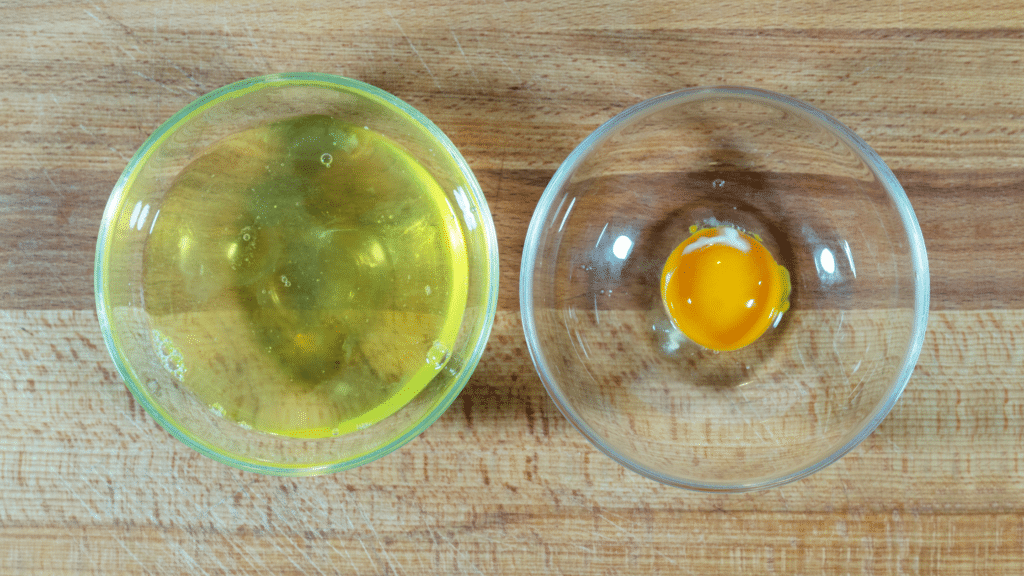
On average, an egg weighs from 50 to 70 grams, and you only will need 10 for 500 grams of flour.
So unless you are making huge amounts of pizza dough, the remainder of the egg whites and the egg yolk will go to waste unless you use it for something else.
Again, just a minute or two in the oven will improve the overall crispiness of the pizza crust, and nothing goes to waste.
Can Eggs in Pizza Dough Make You Sick?
If you want to utilize fresh eggs in pizza dough, there is a crucial safety aspect to consider: the risk of salmonella contamination.
Another component in pizza dough and other batters that might make you or your family sick is raw eggs. Salmonella, a bacteria that causes food illness, may be found in raw or lightly cooked eggs.
Bacteria can be found in eggs with clean, uncracked shells, causing foodborne sickness. Using pasteurized, frozen egg products are safer, but even then, care should be taken to avoid contamination.
Does Gluten-Free Pizza Dough Contain Eggs?
While eggs are perfect for gluten-free recipes or even a diet, they are not part of formulations for gluten free dough.
The primary ingredient in these variations is gluten-free starches or flour, including potato starch, rice or almond flour, and tapioca starch.
These are a few examples of alternatives to commonly used ingredients in conventional pizzas.
Although these alternate ingredients are used with olive oil, sugar, and salt, eggs are never part of the combination.
Adding eggs to pizza dough will cause too much moisture, and density something you do not want to see in your pizzas.
Instead, most bakers use a liquid base instead of eggs. This strategy promotes a more neutral and transparent outcome.
If you want to substitute the eggs you can use Aquafaba which is the liquid left over after cooking chickpeas or beans. You can get this liquid in canned beans or chickpeas as well. This particular liquid has quite a similar consistency to raw eggs and works as a great substitute for eggs while making pizza dough.
Eggs on Pizza – the Ultimate Eggstravaganza!
We know eggs have a loyal fanbase. There are even Facebook groups dedicated to sharing egg-driven recipes. Those who want to infuse their recipes with a helping of eggs may still do so as toppings.
The beauty of pizza is always a new reinvention: people come up with ways to create a variation that nobody else has thought of before.
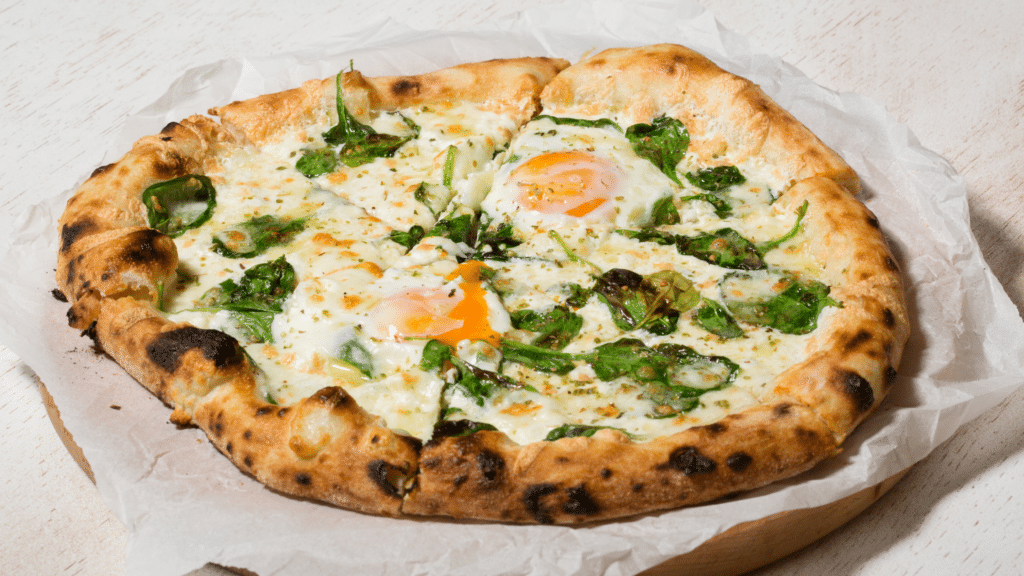
It is not out of the equation to create your egg-driven pizza. Perhaps you want to simulate the feel of a Mediterranean breakfast, putting in eggs and some helping of rosemary.
Whatever the case, do not be afraid to get as creative as you want. It is your pizza!
Restaurants are now selling unusual (but tasty) combinations like chocolate and strawberry pizzas.

Related Questions
Does Domino’s Pizza Dough Contain Eggs?
If you rattle your recipes after popular pizza places like Domino’s, you might be curious about how they deliver pizzas without eggs.
Do you want to specifically avoid egg toppings and wish to emulate the delicious combinations of this joint?
Perhaps someone you’re preparing a pizza for has an egg allergy, and you want to satisfy their taste buds. Well, the answer is that Domino’s has almost no eggs on their food items.
Dominos offers Brooklyn crust, gluten free crust, handmade pan crust, hand tossed crust and thin crust. There are no eggs in these doughs based on the company’s allergen information.
Even their breadsticks and cinnamon sticks items do not have eggs. The mozzarella cheese they use is also made through a microbial rennet, free of any eggs.
Popular pizza flavors like the Philly Cheesesteak Pizza and American Bacon Pizza do not have eggs. Likewise, the White Bacon and Extravaganza pizzas are also egg-free.
Even the more debated flavors like the 5 Cheese Pizza and Aloha Pizza do not have eggs.
Does Papa John’s Pizza Dough Contain Eggs?
Papa John’s is another known pizza chain across the world. Known for their fresh ingredients and unique sauces, they also refrain from using eggs in their pizza dough.
In the past, they also offered vegetarian hand-tossed pizza dough. The primary ingredient in the Papa John’s pizza dough is whey.
However, their gluten-free offerings use eggs. Their all-meat pizzas are egg-free, as are the Chicken BBQ, Pepperoni, and Simply Cheese variants.
Their Garden Special, Hawaiian, Chicken Bacon Ranch, and Super Papa pizzas do not contain any servings of eggs either.
Does Pizza Hut Pizza Dough Contain Eggs?
Pizza Hut is another known pizza chain across the world. All their non-dairy products, except for the crust of Udi’s Gluten-Free Pizza, are free of eggs.
Vegans who want fast pizza usually turn to Pizza Hut, as the company offers a Veggie Lover’s Pizza free of dairy products.
If you are not a vegetarian but do not like eggs on your pizza, the Holiday Ham Supreme, Chicken Supreme, and Meat Lovers pizzas are all egg-free.
Other flavors like Bacon Margherita, Hawaiian Supreme, Bacon Cheeseburger, Pepperoni Lovers, Cheese Lovers, and Veggie Lovers are egg-free.
Since there are many Pizza Hut branches worldwide, it might help to confirm with a waiter or service crew before placing an order.
Menu options and ingredients may vary per branch, affecting you or your companions who have egg allergies.
But if you are hoping to get inspiration from their egg-free offerings, you do not have to worry about putting eggs in your recipes.
Check Amazon’s Pizza-Making Must-Haves
Why have two pizza peels when you can only have one. This pizza peel surpasses the benefits of wood peels with the convenience of a metal peel. It's made entirely from anodized aluminum for a lightweight design that's incredibly durable, too. It's designed to be used frequently in high-heat pizza ovens.
The Etekcity Lasergrip 800 Digital Infrared Thermometer is a versatile and reliable tool for accurate temperature measurements. Its non-contact design allows you to measure temperatures from a distance, making it safe and hygienic for various applications. With a wide temperature range of -58°F to 1382°F (-50°C to 750°C), this infrared thermometer is perfect for both everyday cooking needs and professional uses.
The built-in laser pointer helps you target the specific area you want to measure, ensuring precision and consistency. Whether you're grilling, cooking, or performing household maintenance, the Etekcity Lasergrip 800 provides fast and accurate temperature readings with ease.
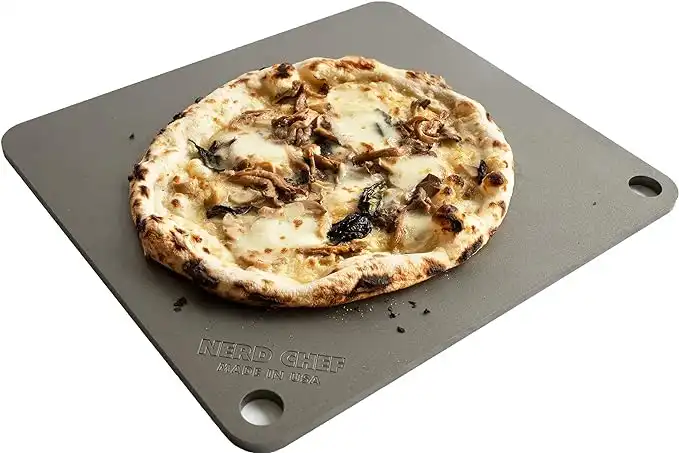 NerdChef Steel Stone
NerdChef Steel Stone
Making great crusts traditionally requires a 700-1000F wood-fired oven. Nerdchef Steel Stone replicates that performance in a home oven with its super-high heat transfer ability - transferring heat energy 20 times faster than ceramic. It creates beautiful and crispier crusts, gorgeous blistering throughout, and it cooks faster.
The Chef's flour is a general-purpose, high gluten flour that works well for many recipes. "Tipo 00" refers to how refined the flour is. Chef's Flour is best for those who want to bake in their traditional home oven up to 500 degrees Fahrenheit!
The Last Slice
While eggs offer a lot of nutritional content and have a lot to impart in taste, they are not part of the equation in pizza dough. So, just remember, there are no eggs in pizza dough! While most pizza dough does not contain eggs, this does not mean that all are eggless. Review the ingredients if eggs or other allergens are a concern for you.
Those who want to keep the familiar feeling of eggs may be creative and add them as toppings.
Nobody is stopping you from creating a fabulous breakfast pizza with scrambled eggs and sausages if that’s your thing!
Most famous pizza restaurants, like Domino’s, Papa John’s, and Pizza Hut, all go egg-free as well, except for the occasional gluten-free variant.
Remember that people expect pizza dough to have a more neutral flavor to let the toppings’ taste stand out.
This principle should guide you as you craft your pizza dough recipes. Who knows, maybe you can dethrone any one of these restaurants as a top pizza seller in a few years?
Whatever the case, remember to be patient as you go on your baking journey.
Masterpieces do not happen overnight. It takes good care and willingness to learn, alongside carefully prepared pizza dough.
Happy baking!
Additional Resources on Pizza Dough
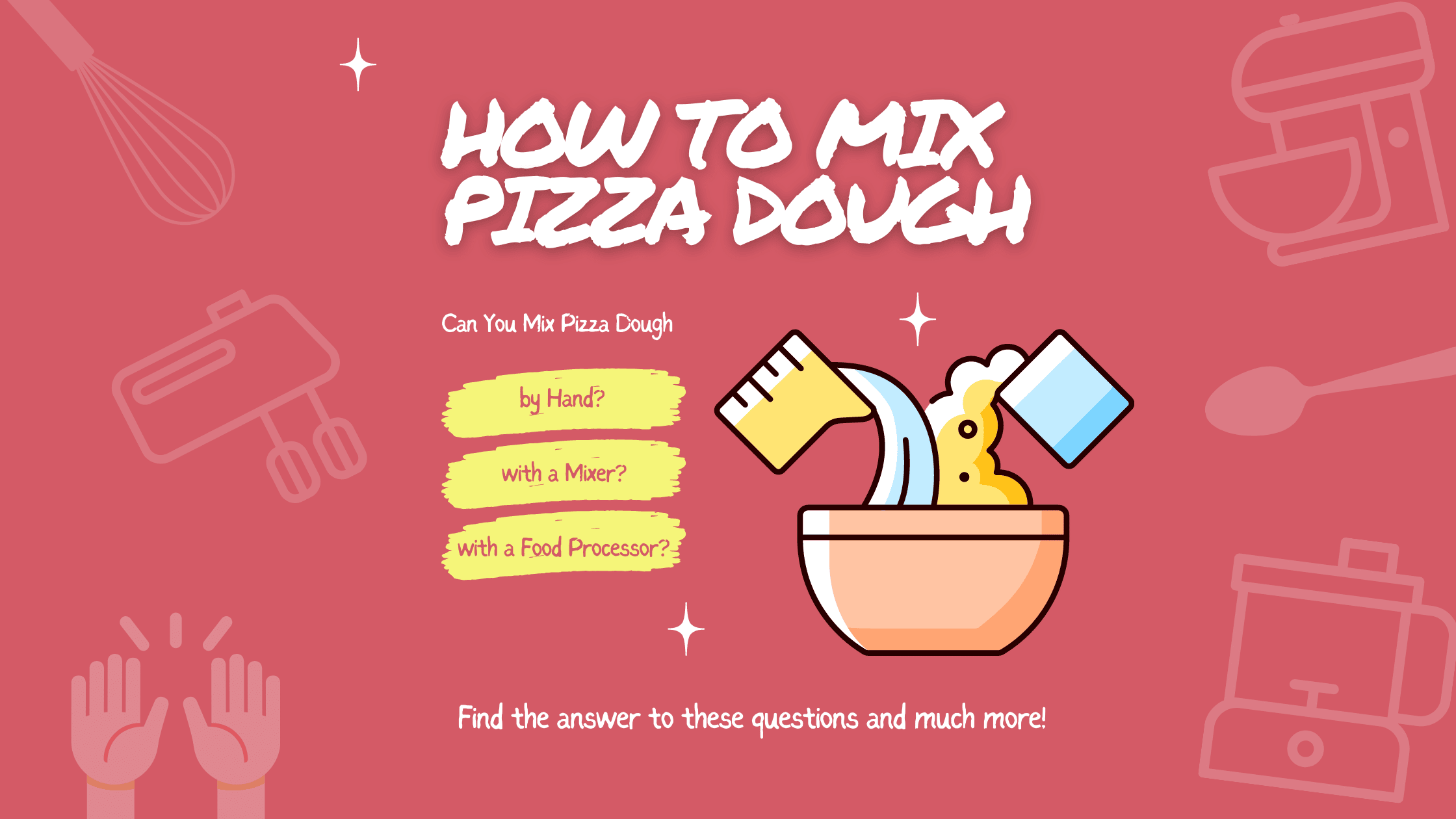
How to Mix Pizza Dough
the PROs
Do you want to learn how to mix pizza dough? Pizza dough is a staple in most households, but it …

Best Water for Pizza Dough: Temperature, Quality, and Hydration
the PROs
In this article, we are going to dive deep into the mysterious ways of water. In conjunction with flour, yeast, and salt, it can make the most spectacular pizza dough.

Salt in Pizza Dough: The Secret to a Perfectly Seasoned Crust
the PROs
Making homemade pizza is not complicated; see how with just a few ingredients like flour, water, yeast, and salt you can do wonders. In this article, we will discuss the role of salt in homemade pizza and discover four (4) basic rules applicable to salt, that are easy to remember that will make you a better homemade pizza baker.
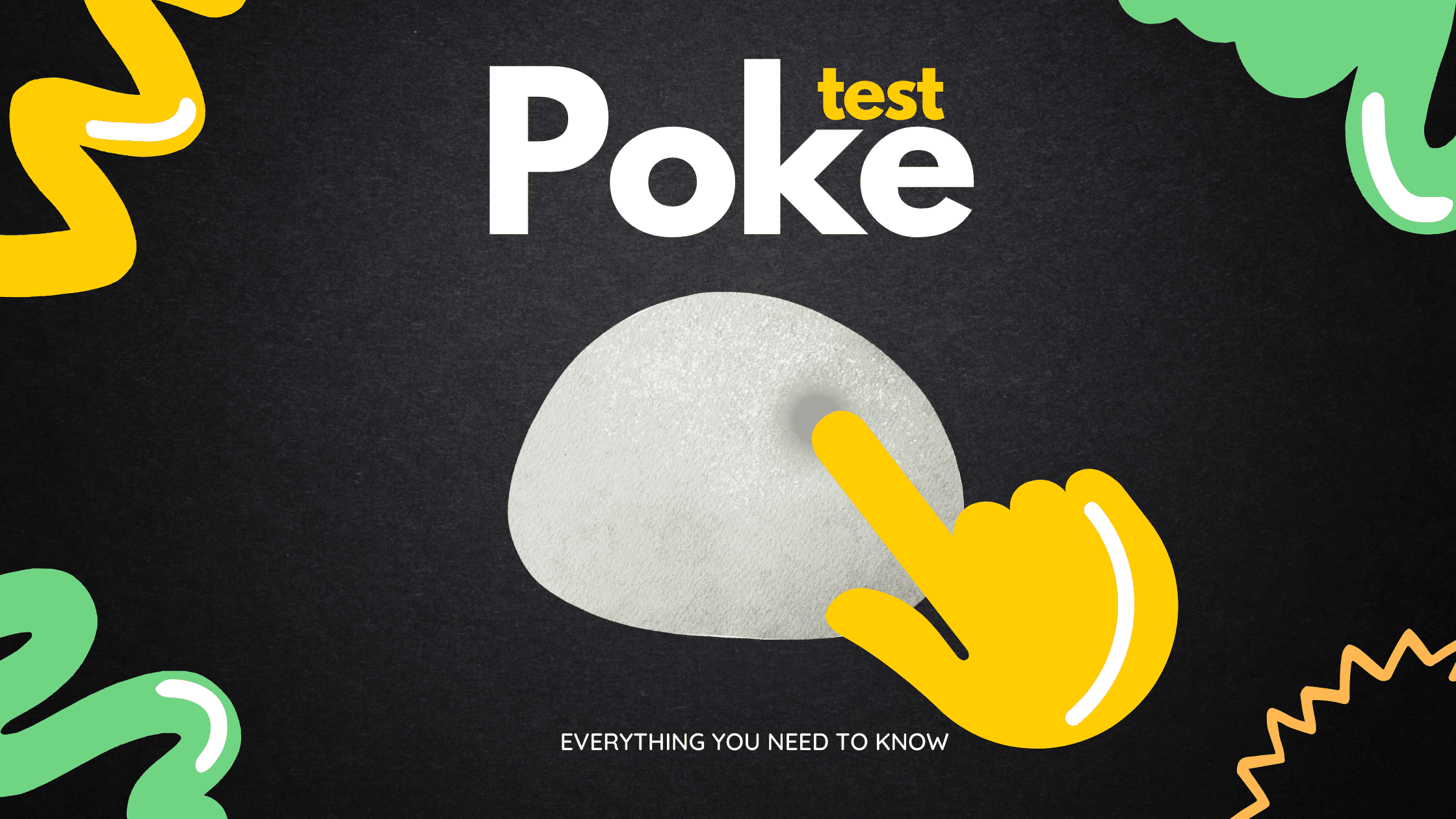
Poke Test Demystified: Master the Technique for Perfect Pizza Every Time
the PROs
Are you tired of ending up with a pizza crust that’s either too thick or still raw in some parts, …
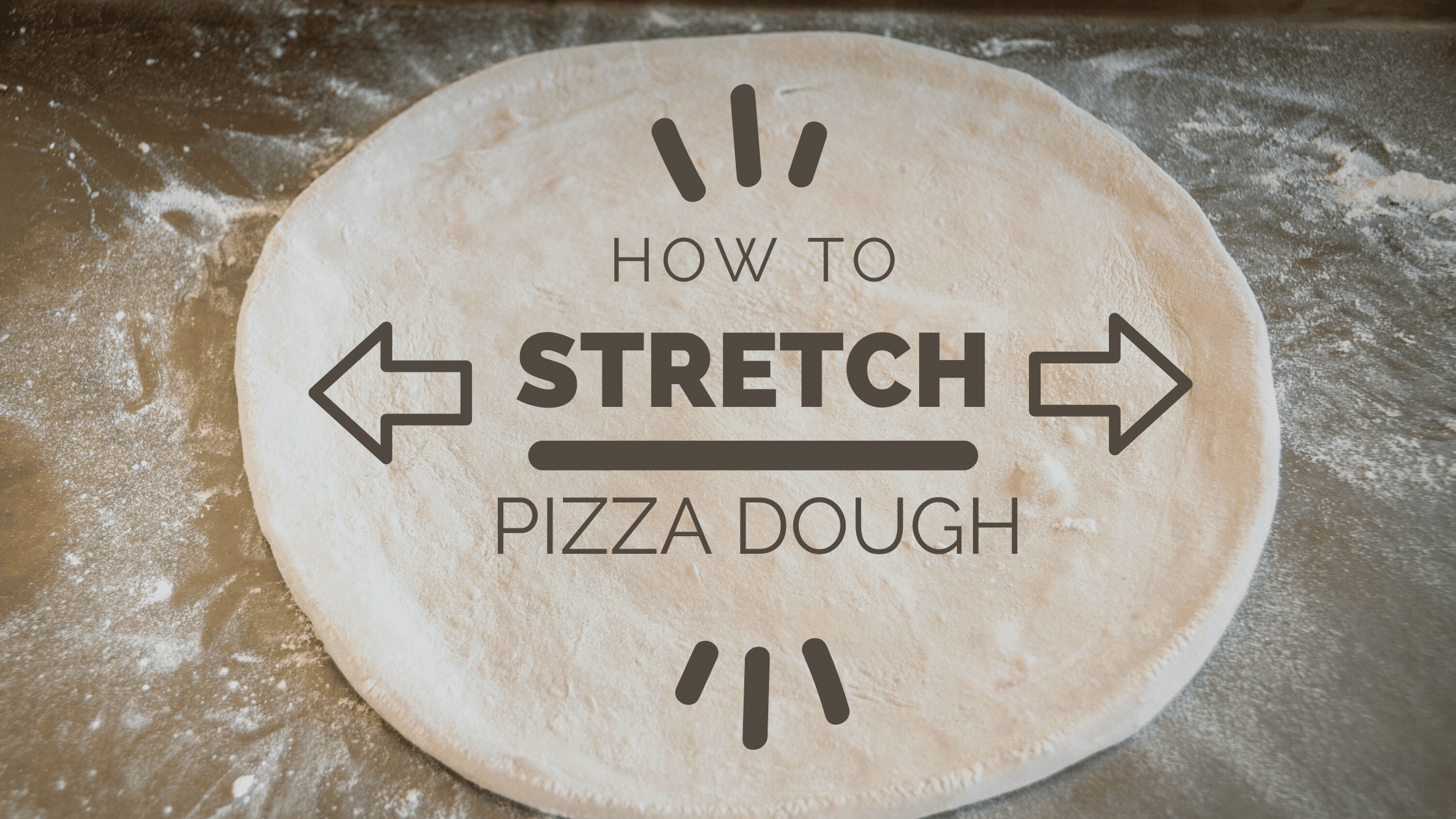
How to Stretch Pizza Dough Like a PRO: Tips and Tricks to Elevate Your Homemade Pizza Game!
the PROs
So you’ve decided to make your pizza but are unsure how to stretch pizza dough to perfection. Well, fear not! …
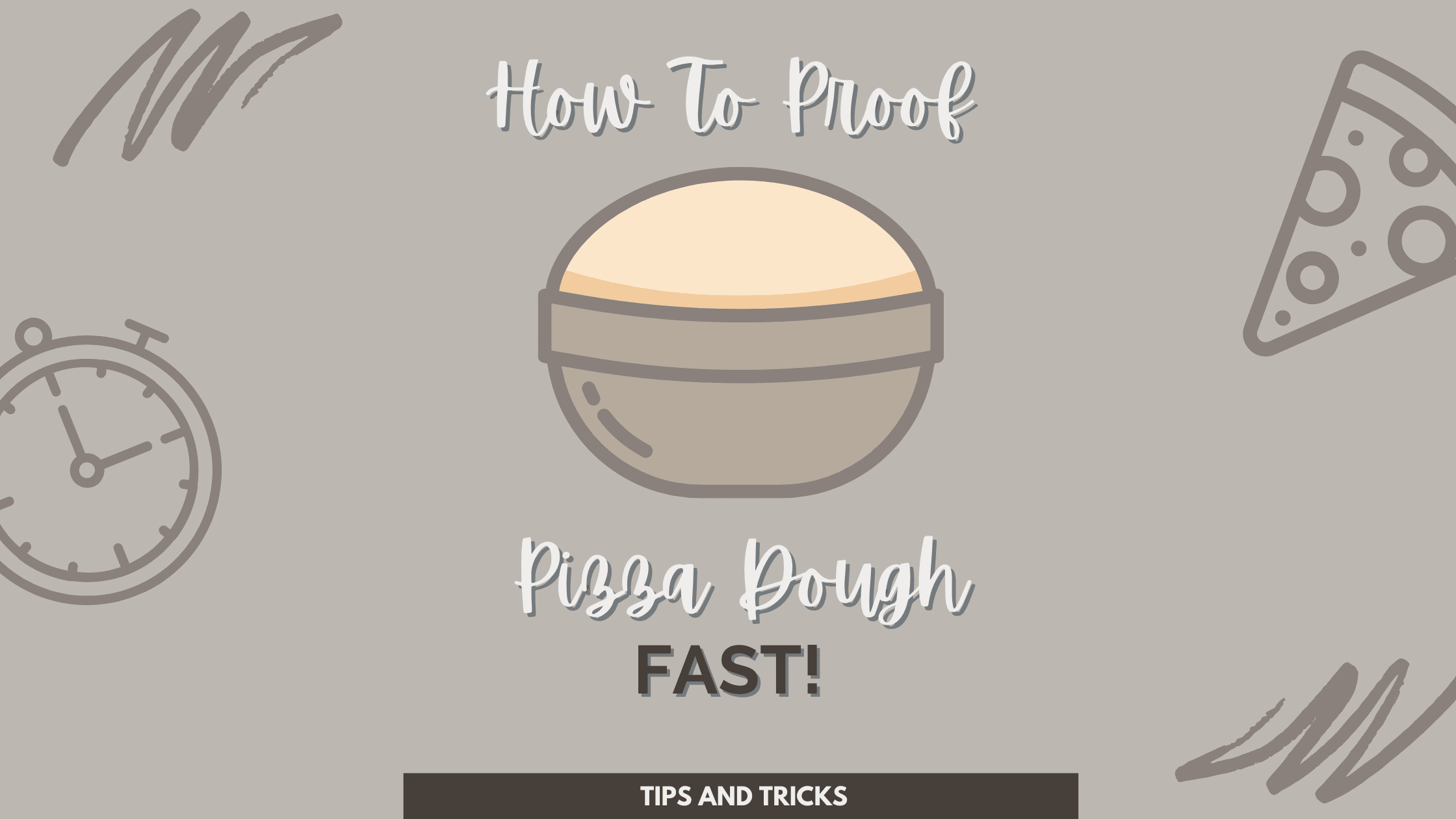
How to Proof Pizza Dough Fast
the PROs
How to Proof Pizza Dough Fast Behind every tasty pizza dough is a secret. Secrets behind its fantastic flavor and …

Windowpane Test: (Tips, How-to, and Everything You Need to Know)
the PROs
Pizza Dough Windowpane Test Kneading the dough is probably one of the most complex parts of baking a pizza. You …
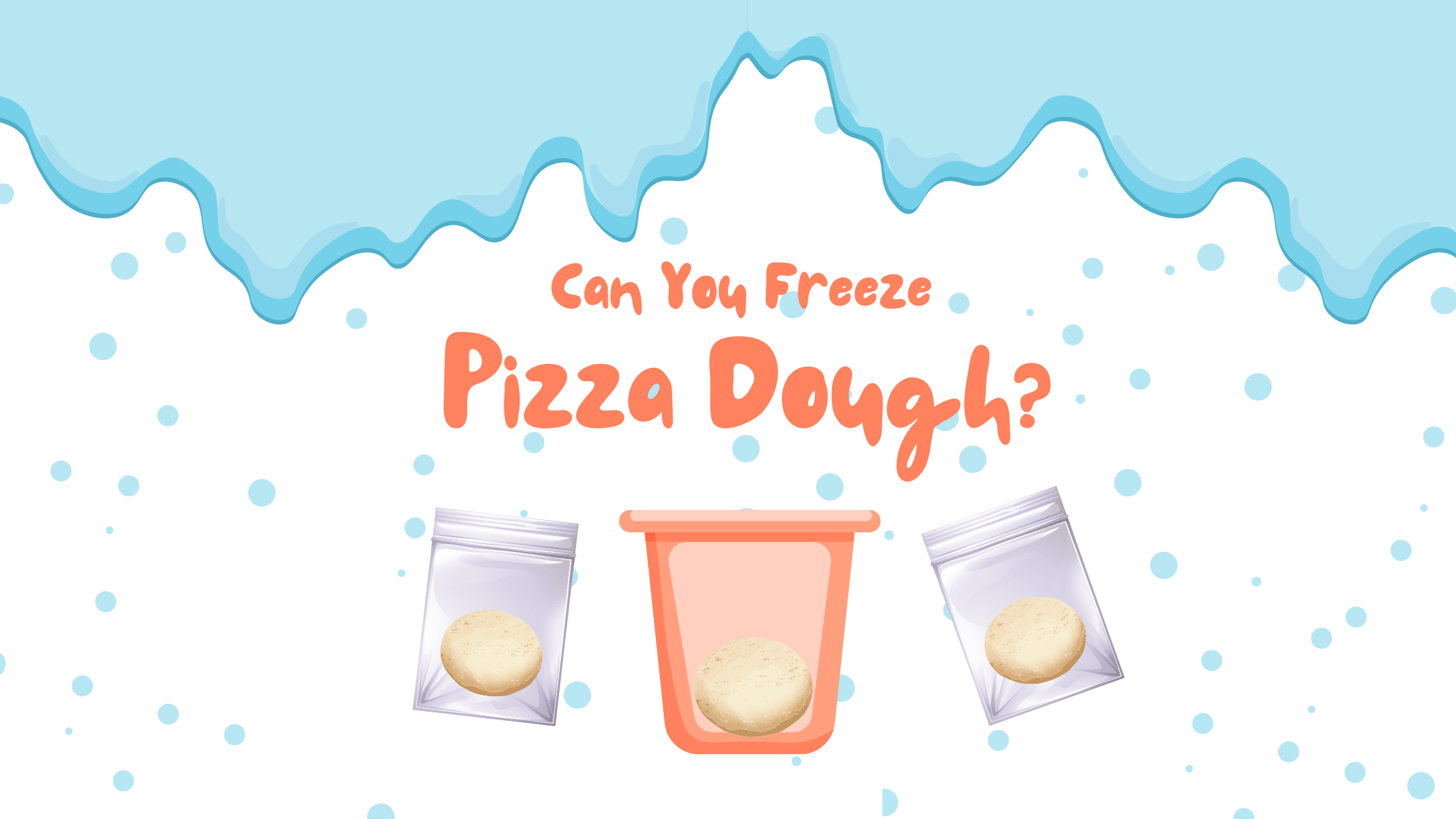
Can You Freeze Pizza Dough? (Everything You Need to Know)
the PROs
How to Freeze Pizza Dough Are you wondering how to freeze pizza dough? Most of us know that putting things …
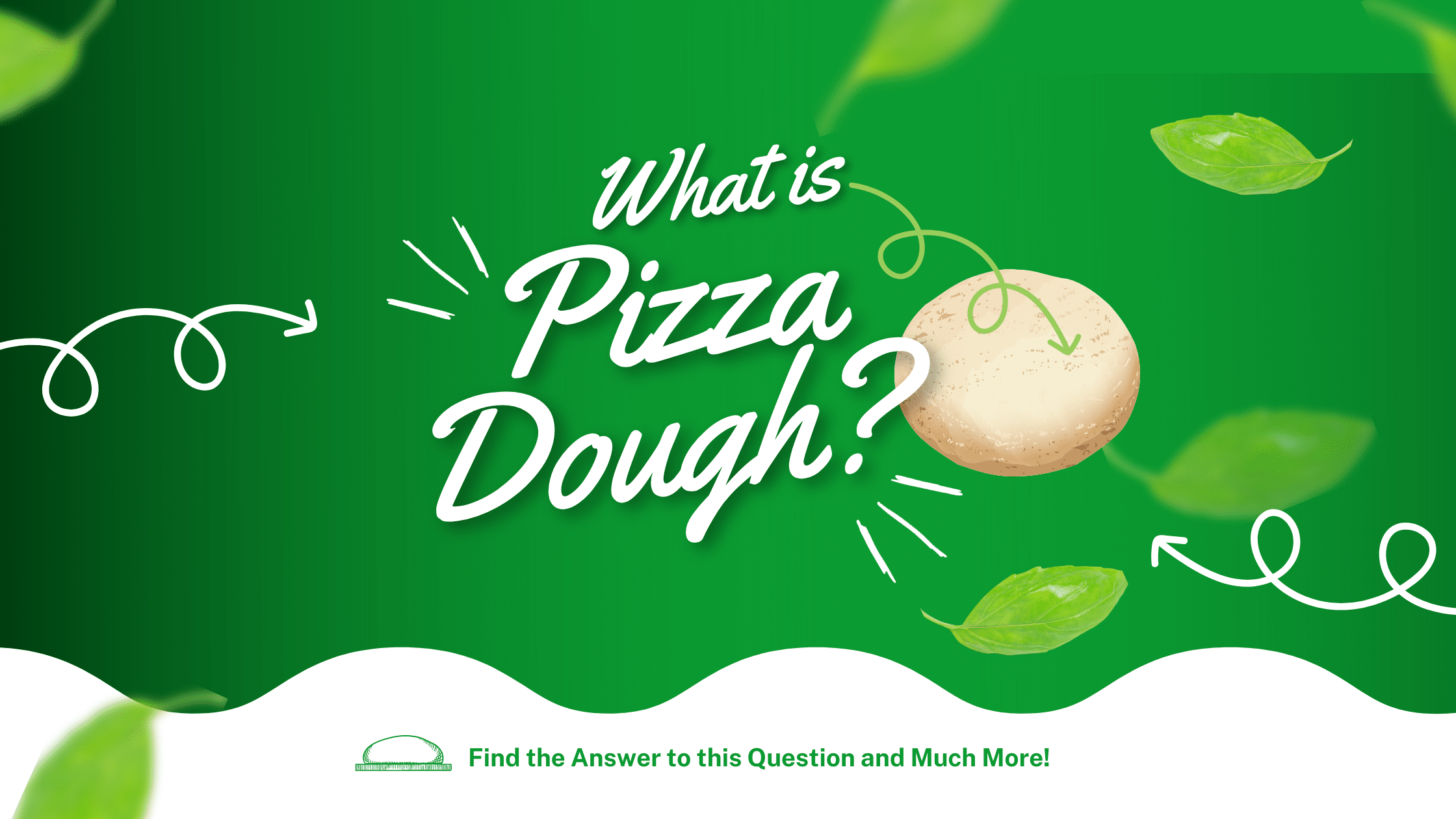
What is Pizza Dough? Here’s What You Need to Know and How to Make It
the PROs
Pretty much everyone likes pizza. But when you first start making pizza at home, you can feel a little overwhelmed. …
Enjoy!
Not a PRO? Not a Problem!
Take a pizza class to bring your pizza skills to the next level,
so you can be a PRO!
Related Posts

Costco Pizza Delivery: Find How You Can Get It Now!
the PROs
People go to Costco’s food court for many different reasons, but the cheesy slice of pizza they serve is among …

Pizza for Beginners: Don’t Buy Pizza, Make It! Here’s How to Get Started!
the PROs
You have this idea that you want to make pizza at home as opposed to ordering it, but where do you start? Don’t worry! Here you will find answers and directions to all your questions.

Pizza Toppings Under Cheese or Over Cheese? [Why the Order Matters]
the PROs
Is Pizza Cheese on Top or Bottom? Hey pizza lovers, are you wondering if you should layer pizza toppings under …
Newsletter
Subscribe to our Recipe of the Week newsletter and receive our partners’ latest recipes, tips, and discount offers.
Keep in Touch!
